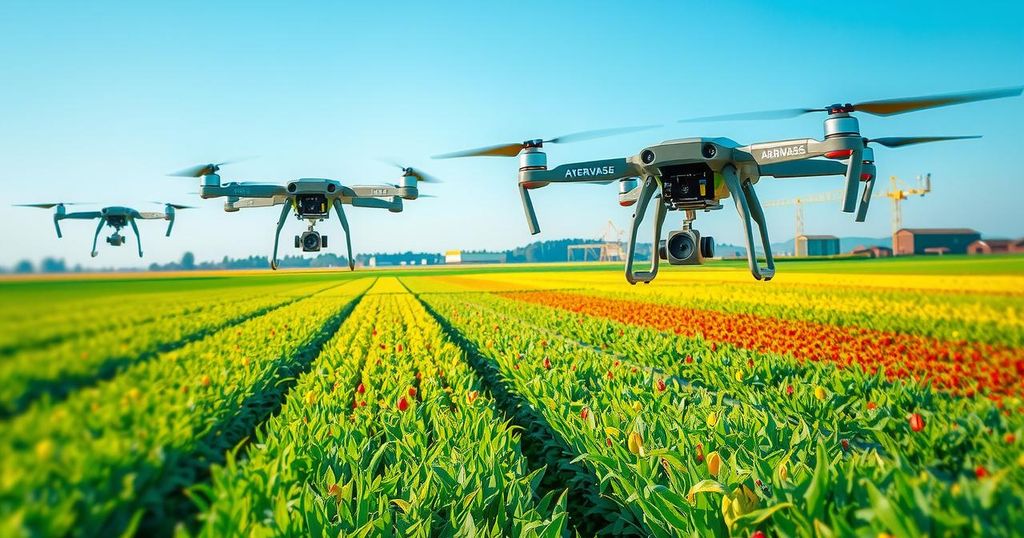Exploring the Essential Role of Human Guidance in Artificial Intelligence
The Lamont Rhodes Lecture discussed the synergy between AI and human expertise. James Koltes highlighted AI’s capacity in agriculture but stressed the necessity for human direction and accurate data. He addressed fears stemming from popular culture, and emphasized the importance of realistic expectations for AI’s current capabilities and future potential.
The recent Lamont Rhodes Lecture at Northern State University highlighted the critical interplay between artificial intelligence (AI) and human expertise. James Koltes, an associate professor from Iowa State University, discussed how AI’s ability to analyze vast information is enhanced significantly when directed by human specialists. This human-AI collaboration is vital for maximizing effectiveness in decision-making processes.
Koltes pointed out popular culture influences perceptions of AI, often framing it in a dystopian light, referencing films like “I, Robot” and “The Terminator.” He emphasized that while society may entertain fears of AI overreach, it’s essential to remember its current applications and benefits, particularly in agriculture and business sectors.
At the lecture, Koltes shared his advancements in the dairy industry, utilizing AI to enhance cattle health through genetics. By employing technology like sensors and biomarkers, he aims to optimize farming practices. He pointed out the potential of non-coding DNA in genetic selection and how AI helps process extensive genetic data efficiently.
Despite some caution regarding AI’s growing influence, Koltes asserted that, when guided correctly, it opens doors for innovation. The quality of data provided to AI remains paramount to mitigating risks and ensuring it provides actionable insights rather than mere repetitions without context.
Intriguingly, Koltes also added a touch of humor, noting that “AI” could correctly refer to artificial insemination or avian influenza, though he emphasized the focus on artificial intelligence in his work. In the livestock sector, he painted a picture of hope where AI can aid in monitoring cattle health, including tracking feeding patterns to identify potential illnesses early.
Addressing the challenges ahead, Koltes warned against unrealistic expectations regarding AI capabilities, particularly around complex decision-making where it can falter. He highlighted that while AI’s improvement in handling intricate inquiries is ongoing, it lacks the human intuition necessary for nuanced judgments.
The conversation turned to the responsibilities of data ownership and ethical considerations. “The elephant in the room is who owns the data and why it is being generated,” Koltes noted. He argued that the future must prioritize data security and foster trust in AI applications as they grow.
Koltes also shared historical examples that illustrate AI’s potential to expedite problem-solving in agriculture. He recalled a 1930s incident where researchers connected a farmer’s cattle deaths to toxic mold, leading to significant medical discoveries. Such breakthroughs showcase the continuous need for AI’s progression in healthcare and agricultural sectors.
As AI advances, Koltes predicts its applications in agriculture will expand to include automated vehicles and drone surveillance, yielding predictive insights on crop health and pest threats. However, he cautioned that efficacy hinges on gathering the right data and insights from skilled professionals.
Conveying a balanced view, Koltes urged for realistic expectations around AI’s capabilities and its limitations in complex decision-making. “There is a lot of hype going around regarding AI, and we have much to learn,” he concluded, highlighting that humans will not be replaced by AI but by those adept at leveraging its capabilities.
In summary, the interplay between artificial intelligence and human expertise is vital for effective application, particularly in agriculture. James Koltes’ insights underscore the benefits of AI when supported by high-quality data and expert guidance. As technology evolves, realistic expectations should guide development, ensuring that human oversight remains indispensable in navigating the uncharted waters of AI advancement.
Original Source: aberdeeninsider.com




Post Comment